Articles & Papers
-
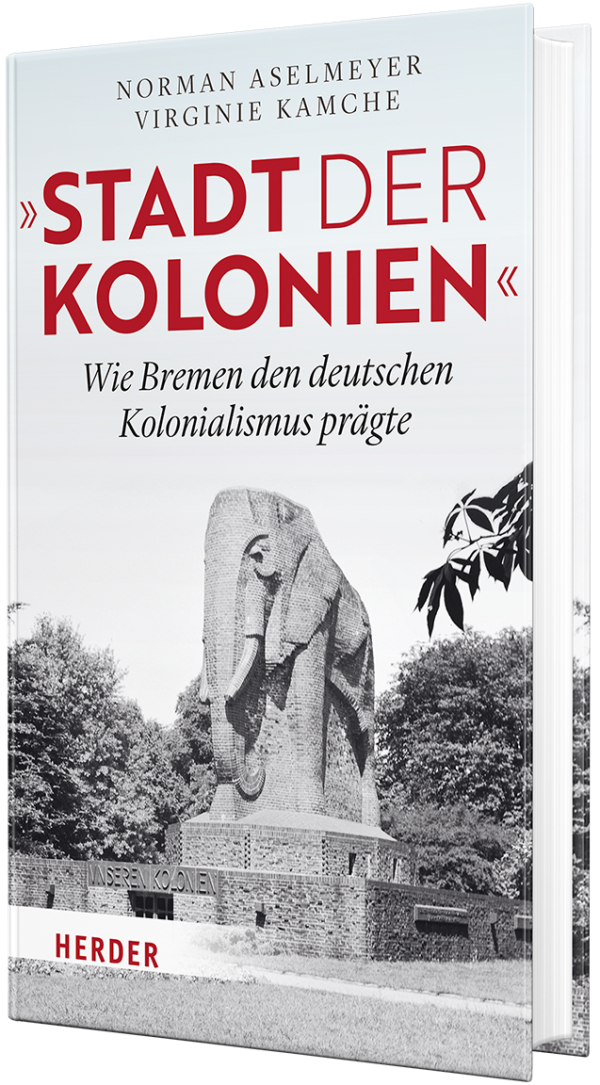 Die Überseestadt: Spiegel kolonialer Verhältnisse
Die Überseestadt: Spiegel kolonialer VerhältnisseThe Bremen Überseestadt, constructed as a new harbor between 1875 and 1913, reflects the close connections between harbor infrastructure and European colonialism. The increase in cargo handling, particularly of colonial commodities, necessitated new port facilities and the deepening of the Weser River. Despite its transformation into a modern urban area, the colonial past remains inadequately addressed to this day. The text calls for making the colonial entanglements visible as an integral part of Bremen’s trade history.
-
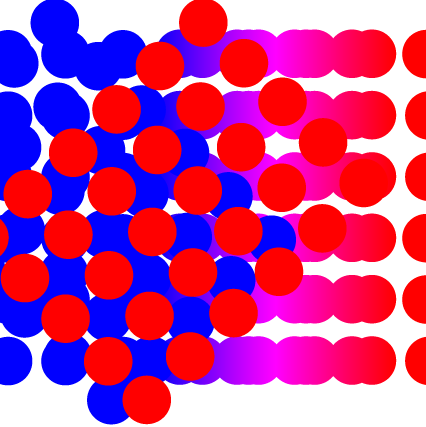 Transnational-Resilient Democracy. On the Conditions for Party Ban Proceedings in Interlegal Systems
Transnational-Resilient Democracy. On the Conditions for Party Ban Proceedings in Interlegal SystemsOn 13.11.2024, a group of 113 members of the German Bundestag tabled a motion to initiate proceedings to ban the Alternative for Germany (AfD) party. The debate to date has focused on the requirements and prospects of success of a (partial) ban of the party from a constitutional perspective (in particular here and here). The national perspective threatens to distort the view of transnational interlegalities and does not do justice to the state of European integration.
-
 Die Zeit in ihrer Vielfalt denken – Anmerkungen aus philosophischer Perspektive
Die Zeit in ihrer Vielfalt denken – Anmerkungen aus philosophischer PerspektiveCorona infections, childhood memories, presidential elections, avalanches: everything we experience and witness and all external events can be ordered in time – according to their succession. Time is therefore an ordering parameter, or dimension, of events. There is disagreement about what else time is on the “battlefield of eternal disputes” – as Kant once called philosophy (or more precisely: metaphysics): Is time relative or absolute? Is it continuous or discrete? Is it a substance in its own right or is it constituted by relationships between events?
-
 Paradoxien des Auditiven? Ambiguitäten und Diskrepanzen beim Hören und in der Musik
Paradoxien des Auditiven? Ambiguitäten und Diskrepanzen beim Hören und in der MusikIn the psychology of music and basic auditory research, there is talk of “paradoxes of hearing” or “musical paradoxies” (Deutsch 1986, 275-280; Utz 2015, 22-52; Deutsch 1995). But can auditory impressions really be paradoxical? What exactly should it mean what exactly should it mean to “hear paradoxes” or even to “hear paradoxically”? We will pursue this question in the following and in doing so, we will first define the concept of paradoxia for the present context – namely in the sense of ambiguity and discrepancy ambiguity and a discrepancy. We will then develop a typology, which at the same time shows the fundamental significance that ambiguities have for music – or more precisely: for the enduring appeal of pieces of music.
-
 Agentiver und Nonagentiver Widerspruch. Eine Kartographie der linguistischen Widerspruchsforschung
Agentiver und Nonagentiver Widerspruch. Eine Kartographie der linguistischen WiderspruchsforschungPublication of the University of Bremen and University of Vienna international student conference »Debattieren, Opponieren, Protestieren – Interdisziplinäre Perspektiven auf sprachliche Praktiken des Widersprechens« 2023.
-
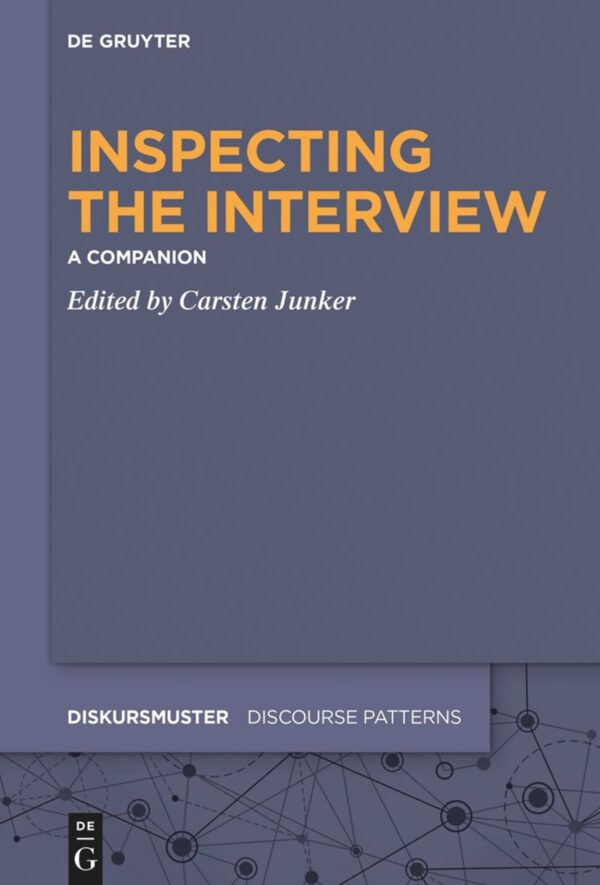 Sounds of Democracy: The Interview as an Instrument of Heuristic Attention to Discursive Voices
Sounds of Democracy: The Interview as an Instrument of Heuristic Attention to Discursive VoicesAgainst the backdrop of general considerations of the interview as a genre, the paper discusses under which theoretical conditions interviews are suitable instruments for discourse analysis. With a special interest in questions of the linguistic constitution of shared knowledge in discourse, the authors outline the discourse-linguistic status of interviews in a systematic way.
-
 Ethnographie als Werkzeug (in) der Rechtswissenschaft
Ethnographie als Werkzeug (in) der RechtswissenschaftLegal research is usually done at a desk, discussions are possible by telephone and even archives are usually accessible online, and most work is based on academic literature. But what insights, perspectives and research subjects are missed by legal research for which researchers do not leave their desks? And how can the gaps be filled?
-
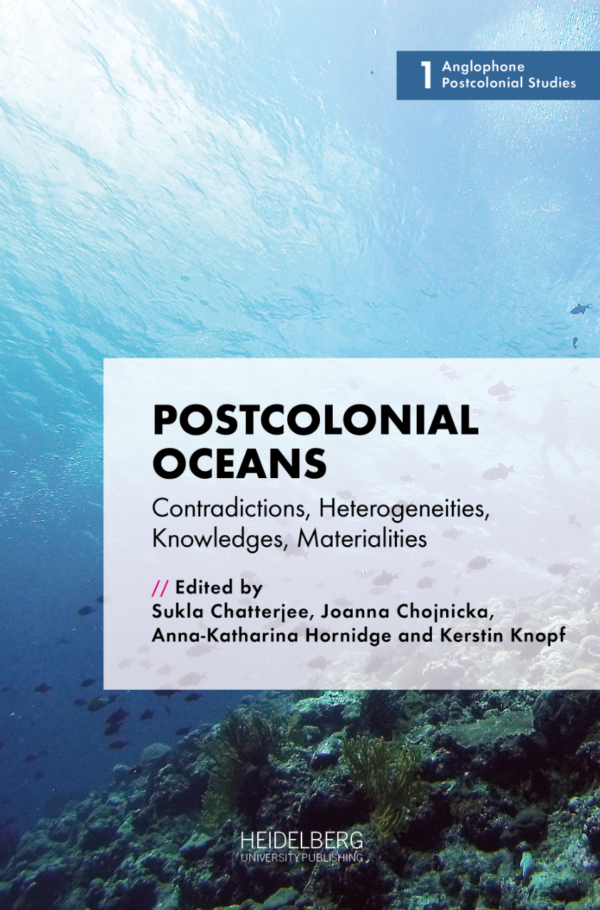 Introduction. Postcolonial Oceans. Contradictions, Heterogeneities, Knowledges, Materialities
Introduction. Postcolonial Oceans. Contradictions, Heterogeneities, Knowledges, MaterialitiesIn Chojnicka, Joanna & Hornidge, Anna-Katharina & Knopf, Kerstin & Chatterjee, Sukla (eds.) Postcolonial Oceans: Contradictions, Heterogeneities, Knowledges, Materialities, 1-19. Heidelberg: Heidelberg University Publishing. DOI: 10.17885/heiup.1046.c17297
-
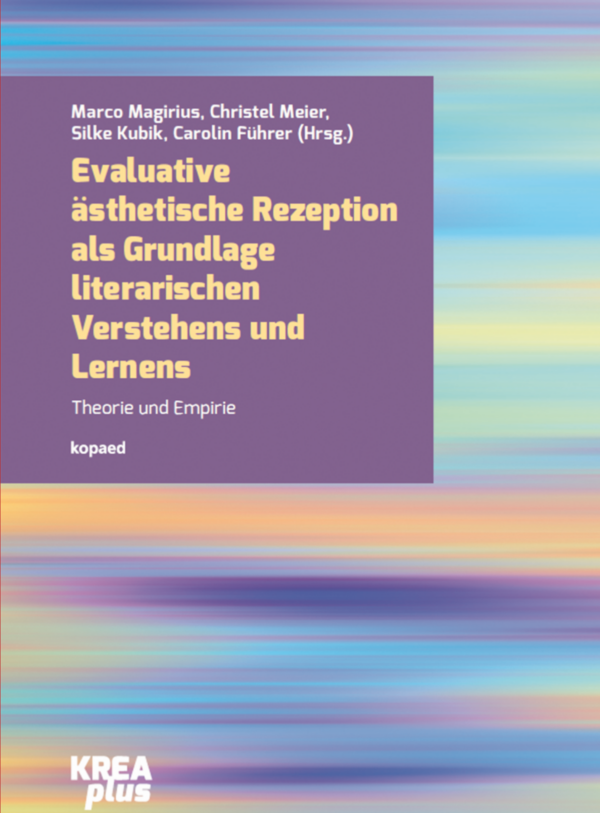 Gänsehaut, Liebe und Langeweile. Sprachliche Konstitution von Emotionen in Laienbuchrezensionen aus dem Schullektürekanon
Gänsehaut, Liebe und Langeweile. Sprachliche Konstitution von Emotionen in Laienbuchrezensionen aus dem SchullektürekanonIn Meier, Christel, Carolin Führer, Marco Magirius & Silke Kubik (eds.) Evaluative ästhetische Rezeption als Grundlage literarischen Verstehens und Lernens: Theorie und Empirie (KREAplus Band 28) 243–256. Muenchen: kopaed. ISBN: 978-3-96848-095-4
-
 The Colonial Making of Bremen’s Peri-Urban Port Area
The Colonial Making of Bremen’s Peri-Urban Port AreaIn Chojnicka, Joanna & Hornidge, Anna-Katharina & Knopf, Kerstin & Chatterjee, Sukla (eds.) Postcolonial Oceans: Contradictions, Heterogeneities, Knowledges, Materialities, 219-236. Heidelberg: Heidelberg University Publishing. DOI: 10.17885/heiup.1046.c17310
-
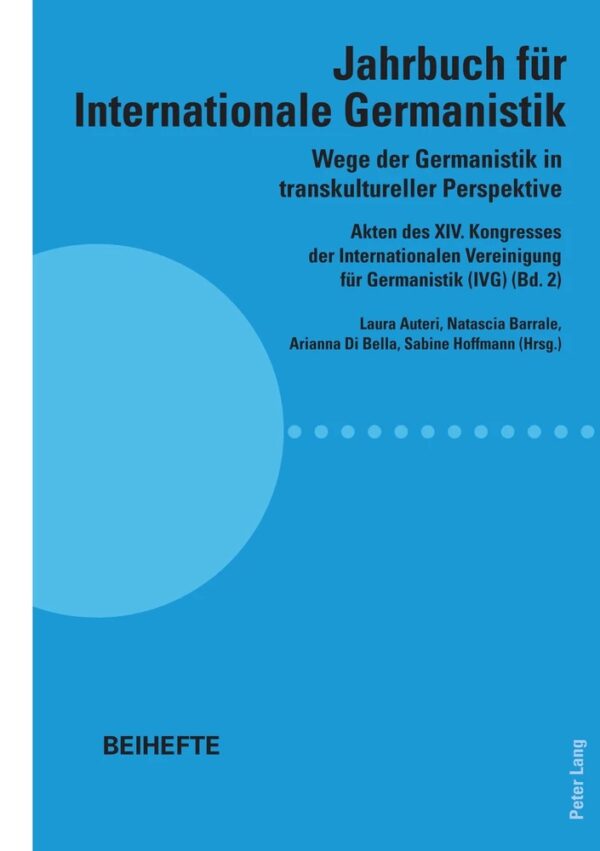 Digitale Räume als Aushandlungsort für Zentralität und Marginalität
Digitale Räume als Aushandlungsort für Zentralität und MarginalitätIn Auteri, Laura, Natascia Barrale, Arianna di Bella & Sabine Hoffmann (eds.) Jahrbuch für internationale Germanistik. Wege der Germanistik in transkultureller Perspektive. Akten des XIV. Kongresses der Internationalen Vereinigung für Germanistik (IVG) 6: 511-515. Bern: Peter Lang Verlag.
-
 Agency and Incentives of Diasporic Political Influencers on Facebook Malawi
Agency and Incentives of Diasporic Political Influencers on Facebook MalawiThis article examines the agency and incentives that drive the activism of diasporic political influencers on “Facebook Malawi,” an online imagined political community. In their seminal work on “social media dissidents” and “social media self-made activists” in the Global South, Matsilele and Sharra demonstrate that social media activists engage with different strategies to initiate movements, mobilize citizens, and create their brands in strong opposition to authoritarian regimes which repositions them as freedom fighters in the eyes of the masses and enemies of the state. Correspondingly, we frame diasporic political influencers as actors aided by digital technologies who engage in “long-distance nationalism” on Facebook against authoritarianism in the homeland. We deploy a qualitative mixed methods approach to analyze Facebook data of two diasporic political influencers, Onjezani Kenani and Manes Winnie Hale, who gave informed consent to use their Facebook data generated in 2018 and 2021, a period preceding and following the 2019 Malawi tripartite elections. A thematic analysis of 250 Facebook posts and interview data with the two influencers illustrates how they exercise their agency in their quest for a vision of a better Malawi while navigating a complex and ambivalent web of online and offline threats, incentives, and interests. Implicated in the political communication and mobilization of the two are different strategies that include verbal inventiveness, trolling, and exposing. The article also shows how the concept of long-distance nationalism needs to be adapted in studying diasporic political influencers.
-
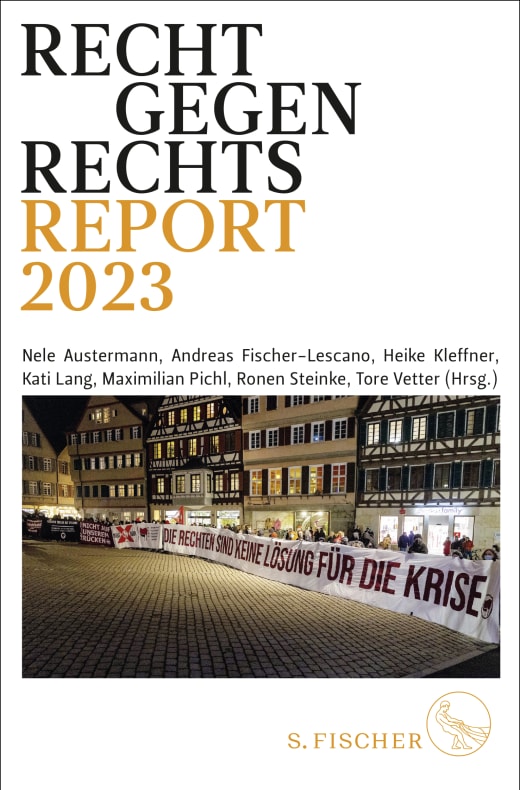 Babycaust? Keine Volksverhetzung! Die deutsche Justiz versagt bei der Bekämpfung von Holocaustverharmlosung und Aufstachelung zum Hass
Babycaust? Keine Volksverhetzung! Die deutsche Justiz versagt bei der Bekämpfung von Holocaustverharmlosung und Aufstachelung zum HassIn Nele Austermann, Andreas Fischer-Lescano, Heike Kleffner, Kati Lang, Maximilian Pichl, Ronen Steinke, & Tore Vetter (Hrsg.), Recht gegen rechts, 307–314. Frankfurt am Main: S. Fischer.
-
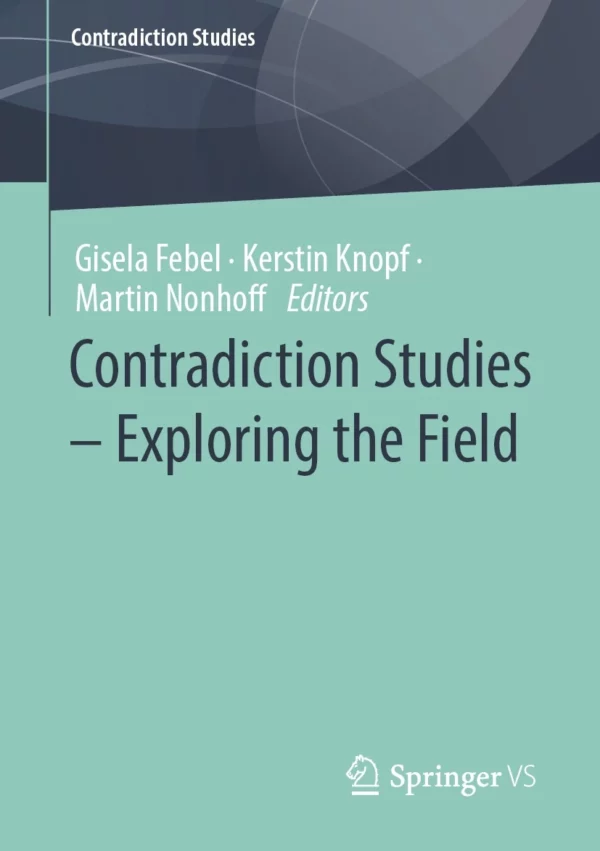 Contradiction Studies – Exploring the Field. An Introduction
Contradiction Studies – Exploring the Field. An IntroductionSince antiquity in Greece, the Law of Non-Contradiction (LNC) is considered to be the foundation of all philosophy. As Aristotle maintains in Metaphysics, “the same attribute cannot at the same time belong and not belong to the same thing and in the same respect” (1005b, 19–23).
-
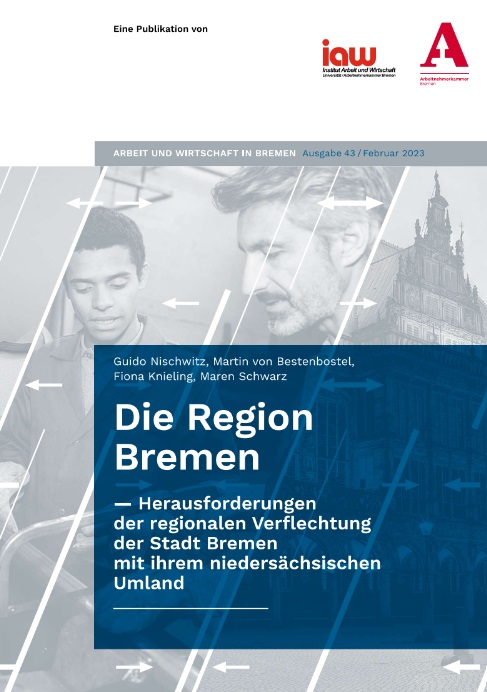 Die Region Bremen. Herausforderungen der regionalen Verflechtung der Stadt Bremen mit ihrem niedersächsischen Umland
Die Region Bremen. Herausforderungen der regionalen Verflechtung der Stadt Bremen mit ihrem niedersächsischen UmlandArbeit und Wirtschaft in Bremen (43).
-
 Widerspruchsresponsive Nachhaltigkeit
Widerspruchsresponsive NachhaltigkeitThe EU’s free trade agreement with New Zealand fails to establish a critical concept of sustainability On July 9, 2023, the European Union and Aotearoa New Zealand concluded a comprehensive free trade agreement, which the European Commission describes as the most ambitious agreement ever with regard to sustainability issues. A closer look reveals that the scope of regulation is more comprehensive and progressive in many respects than in other agreements. Nevertheless, deficits can be identified in the design of the dispute settlement procedure, which are also due to the fact that the sustainability chapter is unable to establish a critical concept of sustainability that is sensitive to its contradictions. Findings from Contradiction Studies can help to fill this gap. Contradictions are associated with the concept of sustainability as it is used in the agreement. Only its recognition makes it possible to negotiate these contradictions at a legal level. To this end, the dispute settlement procedure must be made more effective with the involvement of civil society actors.
-
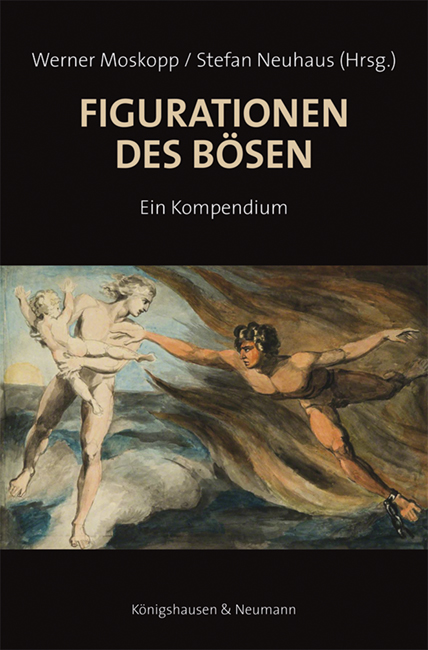 Hagen von Tronje: Vom Antagonist zum Bösewicht zum Antiheld. Überlegungen zur diachronen Entwicklung und Rezeption einer Antagonistenfigur
Hagen von Tronje: Vom Antagonist zum Bösewicht zum Antiheld. Überlegungen zur diachronen Entwicklung und Rezeption einer AntagonistenfigurIn Moskopp, Werner & Stefan Neuhaus (Hrsg.), Figurationen des Bösen. Ein Kompendium, 185-198. Würzburg: Königshausen & Neumann.
-
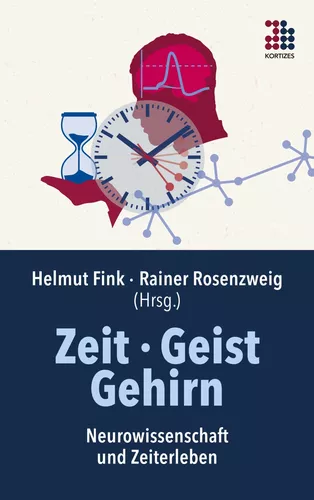 Zeitliche Vielfalt – Erscheinungsformen von Zeit und die Aufgabe der Philosophie
Zeitliche Vielfalt – Erscheinungsformen von Zeit und die Aufgabe der PhilosophieProceedings of the symposium Zeit · Geist · Gehirn. Neurowissenschaft und Zeiterleben 2021.
-
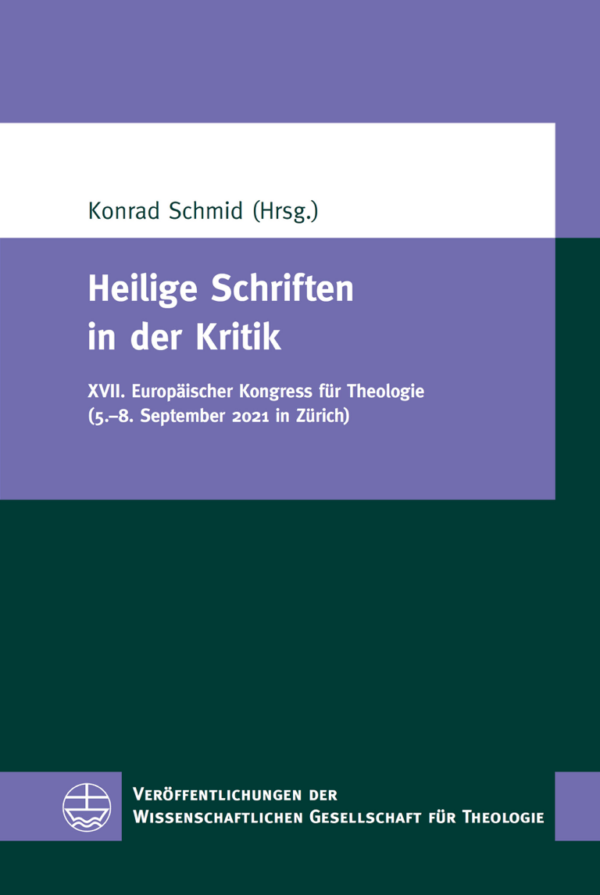 Aristokratie der Buchreligionen? Heilige Schriften aus religionswissenschaftlicher Perspektive
Aristokratie der Buchreligionen? Heilige Schriften aus religionswissenschaftlicher PerspektiveIn Konrad Schmid (ed.) Heilige Schriften in der Kritik. XVII. Europäischer Kongress für Theologie (5.-8. September 2021 in Zürich). 643-658. Leipzig: Evangelische Verlagsanstalt. DOI: 10.5771/9783374072286
-
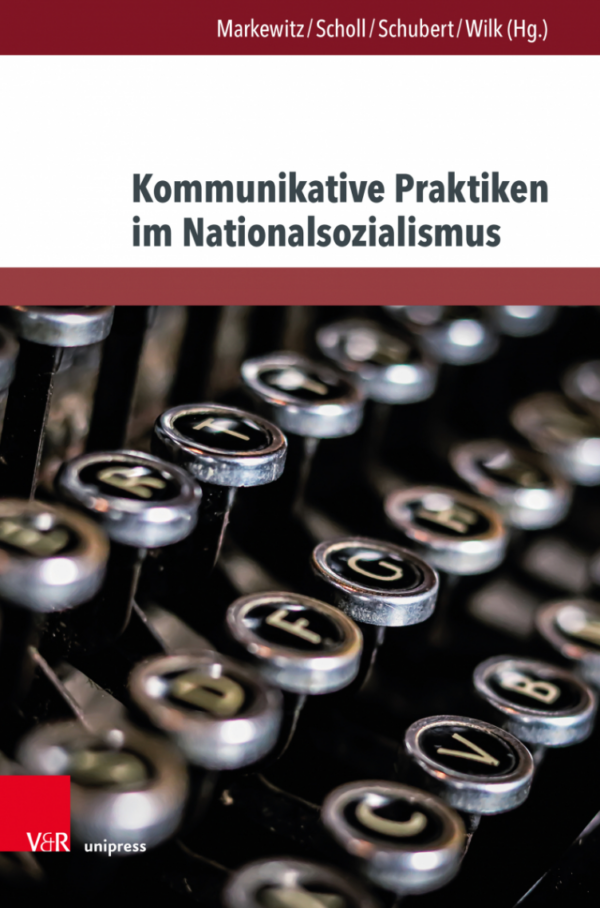 Multidirektionale Lexik in der Diskursgeschichte des 20. Jahrhunderts
Multidirektionale Lexik in der Diskursgeschichte des 20. JahrhundertsIn Friedrich Markewitz, Stefan Scholl, Karsten Schubert & Nicole Wilk (eds.), Kommunikative Praktiken im Nationalsozialismus. 173–205. Göttingen: V&R unipress. ISBN: 978-3-7370-1612-4